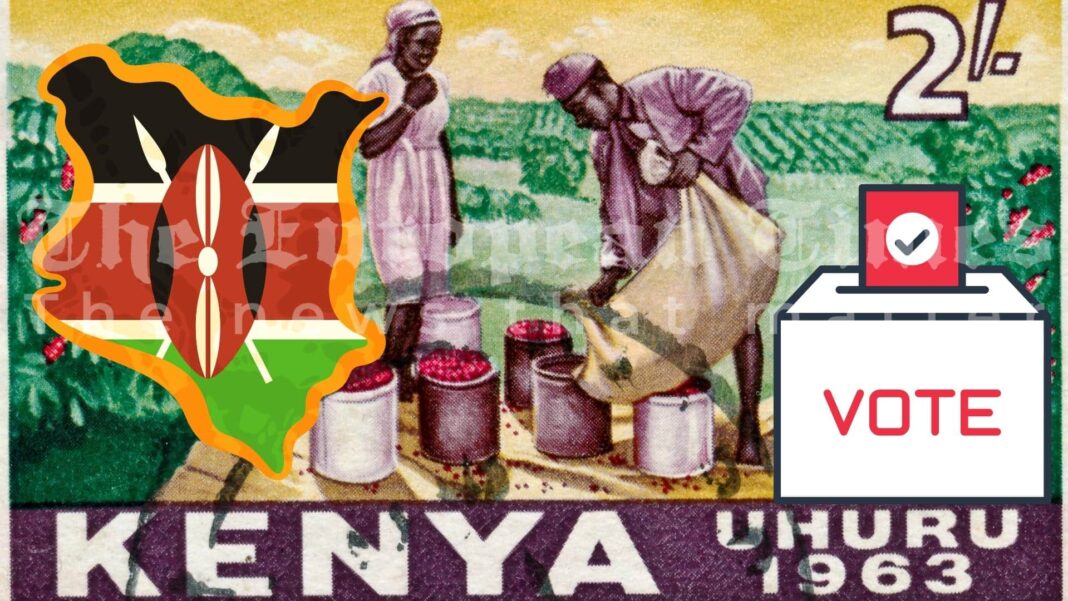Not since Kenya’s forefathers gained the country’s independence out of colonial rule six decades ago has there been a more important event in the East African nation than the Kenyan presidential election on August 9. This is true for the nation’s citizenry, the Kenyan diaspora, and the international community.
By Duggan Flanakin*
The eyes of the world will watch with anticipation as voters cast ballots not just for president and deputy president, but also for members of the National Assembly and Senate, county governors, and the country’s 47 county assemblies.
I will personally be watching with bated breath and with hope for a peaceful transition.
This moment of opportunity and of peaceful transition has not always been the case for Kenya. Yet, as Kenyans suffered through the COVID-19 pandemic, two-term president Uhuru Kenyatta and former longtime rival, Raila Odinga, decided it was time to unite politically in order to lead the country’s people toward a brighter tomorrow.
That tomorrow will require steadfast leaders willing to put the country first and before themselves. Post-election, the country’s future depends largely upon how it addresses the key interrelated problems that only experience can impart.
The promise of this election is the possibility that its outcome will set the stage for national stability and for lasting, positive change. Kenya’s economic forecast is one ripe for expansion as the new leadership navigates out of the current global economic crisis. The fledgling African Continental Free Trade Area (AfCFTA) further provides a strong framework for economic growth across the entire continent, and if managed wisely, Kenya can be stewards in its progress.
As evidence of AfCFTA’s potential, the World Bank has predicted that trade between African nations could expand by over 80 percent by 2035, boosting output by roughly US$450 billion and raising wages for men and women by up to 10 percent in the process.
Thus, the country’s commitment to the development of Kenya’s infrastructure and manufacturing sectors for intra-African trade provides an opportunity to convert the continent’s gaps in these sectors into meaningful prospects for investment. Growth can come autonomously through “Made In Kenya” or at least “Made In Africa” as well as through public-private partnerships with institutional investors from abroad.
The country’s agricultural prowess and its textile strength, along with its potential to serve as a liquefied natural gas (LNG) resource, can also help Europe through the tragic consequences of the Russia-Ukraine conflict. Kenya should be a conduit for continued export throughout Africa and the world. Fulfilling that promise has the potential to bring new prosperity across the nation.
Yes, perhaps Kenya’s time has finally come.
But for Kenya to maximize the benefits of this newfound environment, the nation needs leaders committed to lending continued focus on the creation of localized manufacturing centers that can produce desirable and sustainable and high-skills jobs.
Localized manufacturing has ultimately been proven to unlock sustainable, high-skills development that will hasten Kenya’s forward trajectory within an oft-destabilized global marketplace.
There is also, no question, an elephant in the room. One of the country’s chief goals has to be to end the systemic corruption that has interfered with infrastructure development in years prior, development that is just now bringing jobs and new business ventures to local communities.
New roads and expanding ports host the potential to pave the way for shipping more Kenya-made products to foreign markets, but only if an accountable infrastructure is in place to ensure no cracks are in the system where corruption has been proven to fester.
Kenya’s vast youth demographic, its emerging start-up and digital generation, understands the significance of 2022-era notions such as rooting out corruption and ensuring equitable market inclusion. Kenyan youth are perhaps the world’s most eager and creative entrepreneurs, but for them to succeed, there must be ready access to capital and the disruption of needless regulatory barriers that have allowed for misappropriation, frustrated entrepreneurship, devastated job creation potential, and created a tragic brain drain which must be lifted.
Kenya has to spread the word that all who seek to prosper in the country have the opportunity to do so. This means promoting good labor-management relations, emboldening worker protections, and also listening to those who protest and bringing them into dialogue. Only then will a “Made in Kenya” mentality produce palpable growth and foster diversity, equity, and inclusion (DEI) in today’s globalizing economy.
During this electoral process and thereafter, it is important to recognize that campaign promises should not be viewed as static social contracts with the people. Seasoned veteran politicians, like the grandfatherly Raila Odinga, who have sacrificed their personal well-being and at times their careers for the common good, would understand that such contracts are organic, ever-changing, and evolutionary.
To reinforce his commitment to integrity, gender parity, and equality, I’m pleased to see that the venerable Odinga, whom polls say will win the presidency on his fifth try, has welcomed Martha Wangari Karua to be his running mate for deputy president. She serves well in reinforcing his campaign’s commitment to female empowerment, fighting corruption, and the preservation of national dignity.
And critically, to keep youthful talent at home in Kenya.
After six decades of independence and through an arduous struggle to achieve the economic prosperity Kenyans see before them, at this moment, Kenya is emerging as a mature nation ready to take a leadership role in Africa’s – and the world’s – future.
*Duggan Flanakin is the Director of Policy Research at the Committee For A Constructive Tomorrow. A former Senior Fellow with the Texas Public Policy Foundation, Mr. Flanakin authored definitive works on the creation of the Texas Commission on Environmental Quality and on environmental education in Texas. A brief history of his multifaceted career appears in his book, “Infinite Galaxies: Poems from the Dugout.”









